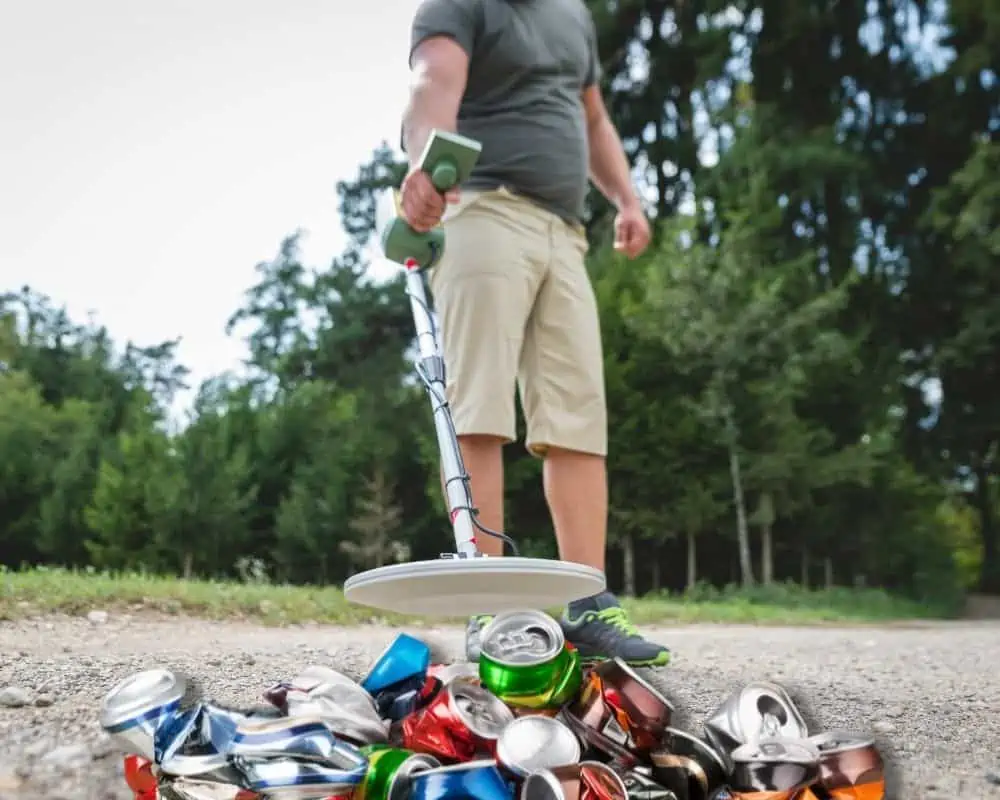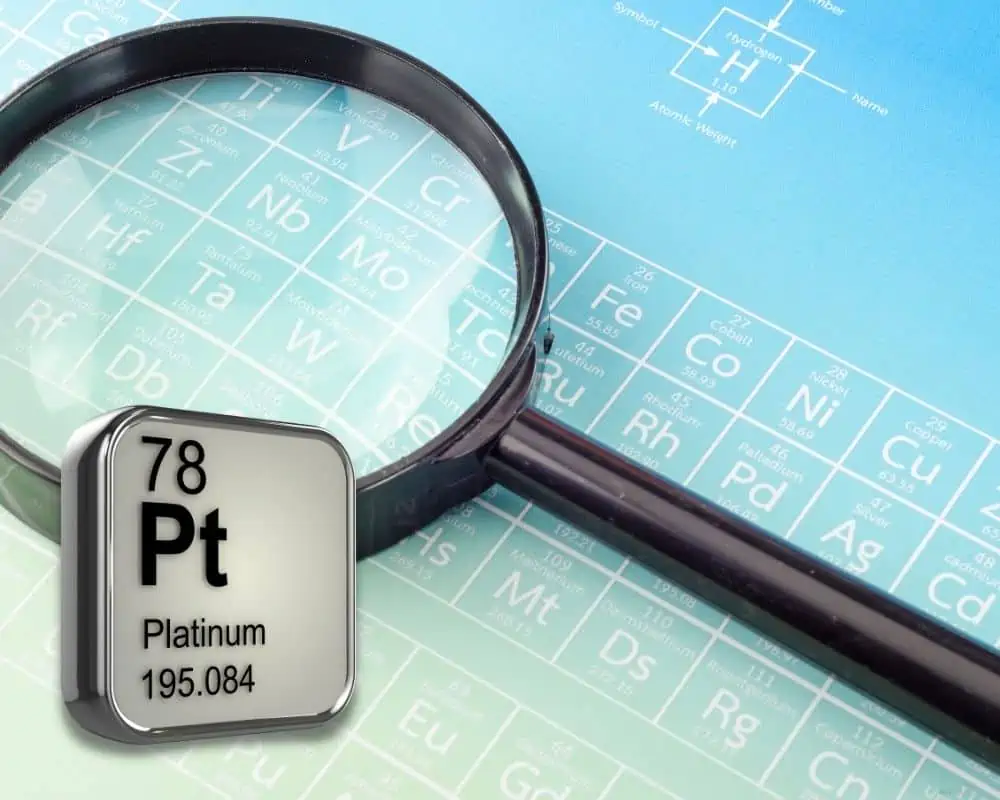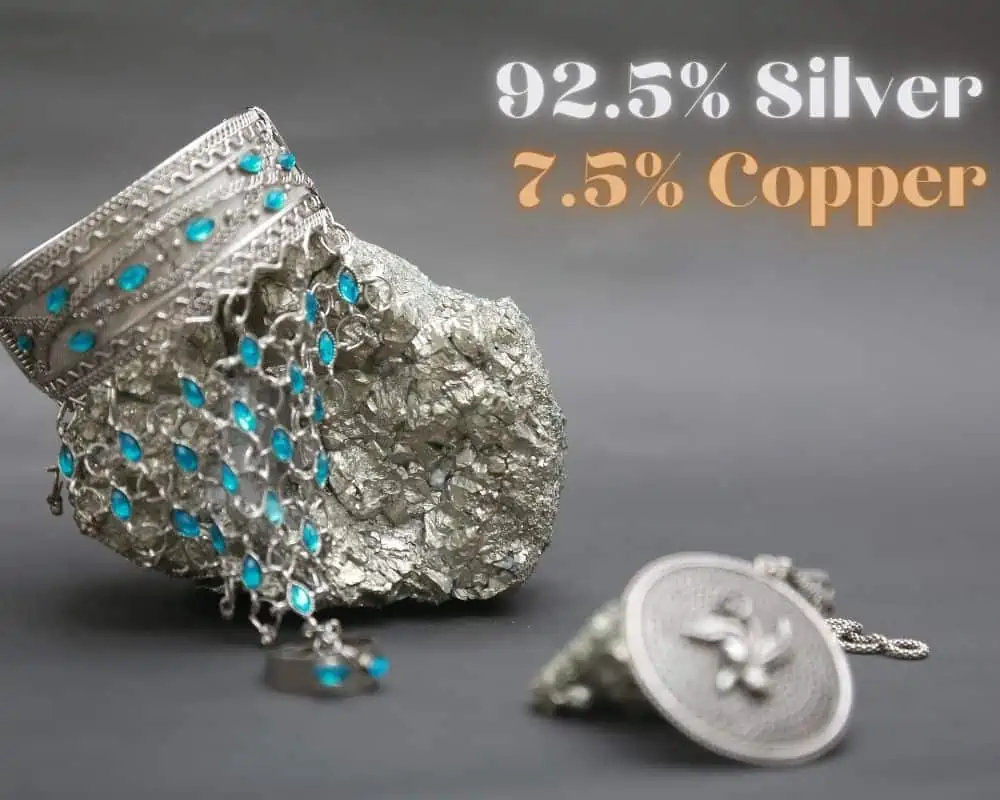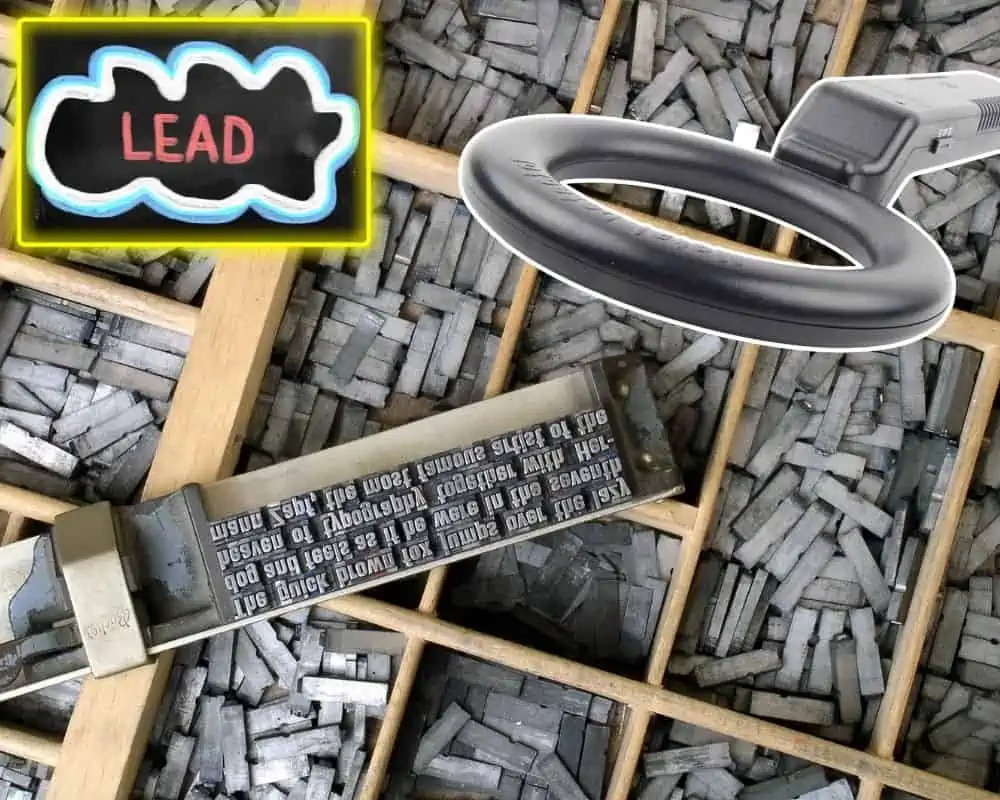If you’re looking for a metal detector, you might be wondering what metals it can detect. There are so many metals out there, that it can be hard to keep track! In this blog post, we will tell you everything you need to know about the metals that detectors can find.
We’ll cover common questions about detecting some household items and some less prizeworthy metals. Plus, we’ll give you some tips on how to determine what type of metal your detector is looking for. So whether you’re looking for a new detector or just curious about what they can find, read on!
What Metals Can My Metal Detector Detect?
You might be surprised by how many metals a metal detector can detect. Most detectors can find metals like aluminum, brass, copper, lead, and sterling silver. Some can even find rare metals like gold and platinum! However, not all detectors are created equal.

There are three main types of metal a detector can pick up. These are ferrous metals, nonferrous metals, and stainless steel. Ferrous metals are those that contain iron, such as keys and nails. Nonferrous metals are all other metals, like aluminum cans and coins.
And stainless steel has such low conductivity, finding it requires some precision. Most detectors can find all types of metal, but some work better for only the kind of frequency emitted by one type or the other.
To learn more about the different kinds of metal detector options there are, check out our guide here.
Below, we get into some of the more common questions about what metals can be detected by a metal detector.
Can Metal Detectors Detect Aluminum?
One of the most common metals, aluminum is found in everything from foil to soda cans. Because it is so widespread, you might be wondering if your metal detector can find it.
The answer is yes! Most detectors can pick up aluminum with ease, however, you will need to adjust your settings.

If you’re looking for aluminum, recalibrate your conductivity and sensitivity controls. This will help it to pick up this metal that can be missed easily due to it being a nonferrous metal.
You should also slow down your sweeping speed and be extra diligent in your search. With a little practice, you’ll be finding aluminum in no time!
And don’t buy into those rumors about aluminum being able to resist the detection from a metal detector. We’ve put this theory to the test and can say with certainty that aluminum foil can, in fact, be detected!
Do Metal Detectors Detect Platinum?
If you’re looking for metals like platinum, you’ll be happy to know that most detectors can find it. Platinum is a nonferrous metal, which means that it’s not magnetic. This makes it harder for some detectors to pick up, but with the right settings, it can be found easily.

But actually finding some platinum in the ground is probably more difficult than finding a nugget of gold. It’s not that your detector won’t pick any of the platinum frequencies.
It’s just that platinum is so rare that the chances of your detector picking up something that’s actually platinum are slim to none. So if you’re looking for this precious metal, don’t set your hopes too high!
Here’s a pro tip, to find some platinum, search a heavily populated area like a beach or park. The more people that are around, the more likely you are to find something made of platinum!
Can Metal Detectors Detect Titanium?
Titanium is another metal that can be tricky for some detectors to find. This is because it’s not very conductive and has a low magnetic signature.
In fact, titanium isn’t truly a metal in the first place! It’s actually classified as a transition metal, which is an element that has properties of both metals and nonmetals. This makes it difficult to find with some detectors, but not impossible.
Most detectors can still find titanium if you adjust the settings properly. To increase your chances of finding titanium, lower the conductivity setting and slow down your sweeping speed. Your best bet is to use a VLF metal detector, as these are more sensitive to metals like titanium.
Will a Metal Detector Find a White Gold Ring?

Yes, a metal detector can find a white gold ring. White gold is a type of metal that is often used in jewelry. It’s made by combining gold with other metals like nickel, palladium, or silver.
While creating a white gold alloy is great for jewelers who want the allure of a gold medal, the strength and durability not commonly associated with gold, it does make it more difficult to detect.
The best way to find white gold is by using a PI metal detector, or Pulse Induction. This type of detector is more sensitive to metals like gold and gold alloys.
Will a Metal Detector Find a Gold Ring?
As we just discussed above, any kind of gold is a metal that can be found by a metal detector. You just have to be using the right one. Gold is a soft metal, which makes it easy to mold and shape. It’s also a reason why it is so valuable.
Most detectors can find gold quite easily but I recommend using a PI or multi-frequency detector for the best outcome. These types of detectors are more sensitive to metals like gold.
And another factor to consider when searching for gold or a gold ring is to be aware of the soil conditions you’re searching around. Gold is often found in areas with high mineralization. So if you’re getting hits, but just not gold, be patient.
For me information on the kinds of gold you may find and what makes them unique and valuable, read up on our post about all things gold-related.
Will a Metal Detector Find Keys?
Yes, a metal detector can find keys. Keys are usually made of metals like brass, bronze, or nickel silver. These metals are all conductive and have a high magnetic signature, which makes them easy to detect.

Whether you lost your keys in the snow, at the beach, or in your own backyard, a metal detector can help you find them. The best way to find keys is by using a discrimination mode on your detector. This will help you eliminate hits from metals that are not keys.
If you don’t have access to a metal detector, you can download a metal detecting app in a pinch. Unfortunately, you’ll have to get close to the ground to search unless you MacGyver your phone to a DIY shaft.
Will a Metal Detector Find Brass?
Yes, a find brass. Brass is an alloy of metals that is made up of copper and zinc. It’s a common metal that is used in everything from musical instruments to doorknobs.
Brass is a conductive metal, which means it’s easy to detect with a metal detector.
Will a Metal Detector Find Sterling Silver?
Yes, a metal detector can find sterling silver. Sterling silver is a type of metal that is made up of 92.5% of silver and 7.5% copper. It’s a popular metal that is used in jewelry, flatware, and serving pieces.

Sterling Silver is not the same thing as fine silver, which is 99.99% silver. Because sterling silver has a small amount of copper in it, it’s less valuable than fine silver but much more durable. However, it’s still a metal that can be detected by a metal detector.
Can a Metal Detector Detect Copper?
Yes, a metal detector can detect copper. Copper is a type of metal that is found in many different items like coins, pipes, and electrical wires. It’s a conductive metal, which means it’s easy to detect with a metal detector.
The best way to find copper, as with most metals, is by using a discrimination mode on your detector. This will help you eliminate hits from metals that are not copper.
Can a Metal Detector Detect Lead?
Yes, a metal detector can detect lead. While lead does have a lower conductivity than other metals, it’s still possible to detect with a metal detector. Lead is a type of metal that is found in many different items like pipes, bullets, weights, and fishing sinkers.

With the technology available in most recent metal detectors (made in the last 20 or so years), finding lead is as simple as adjusting the settings on your machine. If you’re having trouble finding lead, try turning up the sensitivity on your detector.
This will help you find metals like lead that have a lower conductivity.
Can Stainless Steel Be Detected by a Metal Detector?
Yes, stainless steel can be detected by a metal detector. Stainless steel is a type of metal that is made up of iron, chromium, and carbon. It’s a popular metal that is used in everything from flatware to cookware.
While stainless steel is one of the most difficult metals to find because of its extremely low conductivity, it’s still possible to detect with a metal detector. Before the advancement of devices with discrimination and sensitivity settings, it was nearly impossible to find stainless steel for the average detectorist.
Nowadays, however, there are metal detectors that are specifically designed to find stainless steel. If you’re looking for a metal detector that can find stainless steel, make sure to do your research and read reviews before making a purchase.
Can a Metal Detector Find a Lost Phone?
Yes, a metal detector can find a lost phone, but it gets a little complicated. While metal detectors can technically find phones, it’s not as simple as just turning on your machine and scanning the area.
Phones are made with a variety of metals, including aluminum, copper, and stainless steel. But there is enough metal between the circuit board and the battery that a metal detector can usually find a lost phone.

For situations like the beach or other areas with heavy brush, I’d say the best way to find a lost phone is to use a pinpointer. A pinpointer is a small, hand-held device that can help you zero in on the exact location of metals. This will help you avoid false signals and find the phone more quickly.
How Do You Know What Type of Metal Your Detector Is Looking for?
Each metal detector is different, and each one is looking for metals with different conductivity levels. This means that there is no one-size-fits-all answer to this question.
Some metal detectors come with a target identification indicator that will tell you what type of metal it is detecting. Depending on the detector you chose, it may have a wide range of target IDs or possibly just 3 for gold, silver, and iron.

In addition, your metal detector most likely has a discrimination setting. This setting allows you to ignore metals that you’re not interested in, like aluminum cans. By adjusting the discrimination setting, you can help your metal detector find the metals you’re looking for.
But this is more for those looking to avoid certain metals, not understanding the frequency that your detector is receiving.
In general, the best way to know what metals your detector can find is by reading the manual that comes with the machine. This will give you a better understanding of how your detector works and what types of metals it’s designed to find.
What Are Some of the Most Common Metals That People Look for With Their Detectors?
Some of the most common metals that people look for with their detectors are gold, silver, and copper. These metals have high conductivity and are often found in jewelry and coins.

Because of their value and frequent use throughout history, most metal detectorists are interested in finding these metals. However, there are a number of other metals that can be found with a metal detector.
Some of the other metals that people look for include lead, brass, and stainless steel. These metals are not as valuable as gold or silver, but they can still be a highly sought-after item. These metals are used in a variety of industries, so they can be found just about anywhere.
What Are Some of the Rarest Metals on Earth and Where Can You Find Them?
Some of the rarest metals on earth include platinum, palladium, and rhodium. These metals are most commonly found in the automotive industry. Believe it or not, these rare metals are more valuable than gold, mostly due to the amount that can be obtained each year.
Annual rhodium production sits at around 30 tonnes – to place that in context, gold miners annually dig up between 2,500 and 3,000 tonnes of the precious metal.
Hall, 2022
Rhodium, palladium, and platinum metals are found in very few locations on Earth. The vast majority come from South Africa – with more than 80% of the world’s rhodium, for example, originating there and 3/4 of the platinum supply.

Besides their rarity, these metals are sought after for their use in making catalytic converters. Catalytic converters help to reduce harmful emissions from automobiles, making them an important part of the fight against climate change.
If you’re interested in metal detecting for these precious metals, your best bet is to visit South Africa or Russia. But be warned, these metals are not easy to find and you’ll need a very powerful metal detector to have any chance of finding them.
In Conclusion
As a metal detectorist, it’s important to know what types of metals your detector can detect. Some detectors are designed to find certain types of metals, while others are more versatile.
For instance, can your detector find aluminum, platinum, titanium, a white gold ring, or a lost cellphone? What about brass, sterling silver, copper, lead, stainless steel, and rhodium? Knowing the answer to this question is key to being successful with your metal detecting hobby.
I hope this article has helped you better understand what metals your metal detector can detect. The education for a metal detector enthusiast is never over!





